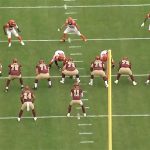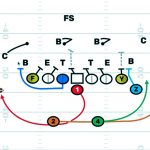Baseball has a distinct set of unwritten rules that players follow alongside the official regulations, forming a unique subculture within the sport.
These traditions, passed down through generations, encompass everything from on-field conduct to superstitions like not mentioning a no-hitter in progress.
Delving into these 25 biggest unwritten rules reveals a blend of tradition, respect, and strategy that adds depth and complexity to baseball beyond its physical aspects, emphasizing the importance of understanding and honoring these customs for players to succeed.
1. Don’t Mention A No-Hitter
In baseball, there is an unwritten rule that prohibits mentioning a no-hitter or perfect game in progress to avoid jinxing it.
Players, fans, and announcers are expected to adhere to this superstition to maintain the pitcher’s focus and prevent distractions.
This tradition is respected by players on the field, who understand its significance in preserving the integrity of the game and showing respect for their teammate’s remarkable performance.
Following this unwritten rule adds a sense of camaraderie and superstition that enhances the intrigue of the game.
2. Pitchers Have To Stay In The Dug Out
In baseball’s unwritten rules, pitchers are expected to stay in the dugout during their team’s offensive innings as a way to uphold a separation between pitchers and position players.
This practice promotes team unity and shows support for teammates by staying engaged in the game from the bench.
Adhering to this tradition reflects respect for each player’s role on the team and contributes to the ethos of baseball as a collective sport.
3. Don’t Steal If You’re Significantly Ahead
Stealing bases in baseball can be strategic, but there’s an unwritten rule against doing so when a team is far ahead to avoid being unsportsmanlike.
Attempting a steal with two outs and a significant lead can disrupt the game and show disrespect to the trailing team.
Breaking this norm not only goes against fair play but can also lead to conflicts between teams, as seen in incidents such as the Indians-Royals game which resulted in on-field altercations and penalties.
Adhering to this tradition helps preserve baseball’s integrity by promoting sportsmanship, fairness, and respect while maintaining competitiveness.
4. Don’t Spend Time Admiring Your Home Run
One of baseball’s key unwritten rules is “Don’t Spend Time Admiring Your Home Run,” emphasizing prompt base running over celebrating individual success to maintain humility and respect for the game.
Violations can trigger retaliation like purpose pitches or hits, disrupting sportsmanship and escalating conflicts with opponents.
An instance involving Bryce Harper and Hunter Strickland illustrates the consequences when this rule is disregarded, underscoring its importance in preserving fair play, respect, and camaraderie in baseball.
5. Don’t Show Up Your Fielders If They Commit An Error
To support fielders when they make errors, acknowledge their effort positively rather than displaying frustration.
Avoid negative gestures and offer understanding to help them regain confidence. Encourage and stay positive by providing motivation for improvement after mistakes happen.
Communication should be supportive without blame, offering constructive feedback. Leading by example promotes a culture of teamwork and respect within the team when handling errors with composure and using them as learning opportunities for everyone involved.
6. Don’t Swing On 3-0 Counts
In baseball, not swinging on a 3-0 count is an important unwritten rule that upholds sportsmanship and respects the game dynamics.
It shows respect for the game’s traditions, maintains fair competition, and demonstrates good sportsmanship towards opponents.
Adhering to this guideline promotes team unity, responsible play, and strategic decision-making on the field, emphasizing values beyond individual achievements in baseball.
7. Don’t Throw A Curveball To A Fellow Pitcher
Pitchers show respect by refraining from throwing curveballs at each other during at-bats, honoring the challenges they face in their position.
This tradition is aimed at avoiding discomfort and maintaining camaraderie on the field. By acknowledging skill sets and upholding sportsmanship, players demonstrate mutual respect and contribute to a positive atmosphere in baseball.
8. If A Pitcher Hits A Teammate, Hit One Of Theirs
Retaliation in baseball, governed by an unwritten code, is considered necessary to uphold justice and team unity.
The concept of reciprocity, where retribution is expected when a teammate is targeted, fosters loyalty among players.
This practice serves to set boundaries, deter mistreatment of players, maintain order on the field, and uphold respect for the game while emphasizing honor and solidarity within the team.
9. Don’t Step On The Pitcher’s Mound
The pitcher’s mound in baseball is a revered area where pitchers prepare and strategize. Stepping on the mound without permission is a breach of etiquette, disrespectful to the pitcher and the game.
Players should avoid it unless necessary to show respect for the pitcher’s focus and concentration, avoiding potential conflict and upholding sportsmanship and tradition in the game.
10. Everyone Must Be Involved In An On-Field Fight
In baseball, when a fight erupts on the field, all players from both teams are expected to participate to demonstrate unity and loyalty.
This unwritten rule mandates that everyone rushes onto the field to support their teammates, regardless of their direct involvement in the conflict.
By following this tradition, players show solidarity and strengthen team spirit during challenging moments.
11. Don’t Talk To Opposing Fielders Trying To Catch A Ball
During a game, players must stay focused and respect their opponents’ concentration, especially when they are fielding.
It’s important not to distract or engage in unnecessary chatter with the opposing team’s fielders as it can disrupt the flow of the game and lead to errors.
Adhering to this unwritten rule promotes good sportsmanship, fair play, and contributes to a harmonious baseball atmosphere where players demonstrate respect for the game and their competitors.
12. MLB Is Trying To End The Unwritten Rules
Major League Baseball (MLB) is working to eliminate longstanding unwritten rules in baseball to create a more inclusive and respectful environment on the field.
This involves shifting towards explicit regulations to reduce ambiguity and conflicts among players. MLB is also emphasizing sportsmanship, mutual respect, and dignity towards opponents to foster a positive playing atmosphere.
Educational campaigns are being used to raise awareness about the impact of unwritten rules, aiming for a smoother transition towards modern player conduct standards that prioritize fairness and integrity.
Overall, these efforts demonstrate MLB’s commitment to promoting transparency, sportsmanship, and equality in professional baseball.
13. Don’t Come In Too Early
The text emphasizes the importance of not leaving a baseball game early, especially if you have front-row seats.
By staying till the end, you demonstrate your engagement with the sport, appreciation for the experience, and respect for players’ efforts.
Leaving early not only detracts from others’ enjoyment but also risks missing out on late-game excitement and historic moments that define baseball.
14. Don’t Help The Other Team
In baseball, players must avoid actions that inadvertently benefit the opposing team, such as stealing bases unnecessarily or making disrespectful moves that prioritize individual gains over team success.
It is important to consider the game situation before taking certain actions to ensure they do not harm one’s own team.
Upholding sportsmanship and prioritizing team dynamics are crucial elements in adhering to these unwritten rules and promoting fair play on the field.
15. Take That Strike When Behind
Players in baseball are expected to follow the unwritten rule of “take that strike when behind,” which stresses discipline and strategic thinking, particularly when their team is losing.
This practice demonstrates sportsmanship by showing fairness and respect for the game, helps players analyze the pitcher’s tactics, and upholds traditional baseball values by respecting the integrity of the sport.
Adhering to this principle enhances the competitive aspect of baseball while honoring its rich history and culture.
16. Hit Where It’s Pitched
To succeed in baseball, players need to follow the unwritten rule of hitting where the pitch is thrown, which aligns with the game’s basics and boosts the chances of a successful at-bat.
Players can achieve this by reading the pitch, adjusting their position accordingly, using the entire field for hitting, avoiding bad pitches, and trusting their timing.
Mastering this skill enhances a player’s performance at bat and helps elevate their team’s offensive capabilities by emphasizing precision and adaptability in hitting strategies.
17. Never Make The First Out At Third
Players should carefully evaluate the game context before advancing to third base, considering factors like the score and number of outs.
Prioritizing smart base running decisions over aggressive plays is crucial, especially when risking being the first out at third.
Understanding the game’s momentum and respecting the team’s strategy are key in deciding whether a play at third aligns with overall performance and scoring opportunities.
Valuing baserunners and focusing on strategic advancement through bases can maximize scoring chances while minimizing unnecessary risks.
18. Don’t Make A Power Hitter Bunt
Encouraging power hitters to swing away boosts offensive potential by leveraging their strength for more extra-base hits and runs, avoiding missed opportunities that bunting might entail. This approach bolsters player confidence, enhances team morale, and optimizes overall performance by strategically capitalizing on each player’s strengths in the game.
19. A Manager Should Be Detached From His Players
The unwritten rule in baseball concerning a manager’s conduct towards their players emphasizes the importance of maintaining a level of detachment to ensure fair and unbiased decision-making.
This detachment allows managers to focus on strategic aspects, enforce discipline, promote team unity, and hold everyone accountable.
While it is crucial for managers to remain distanced from individual players, there are times when they must assert their authority to handle disciplinary matters or resolve conflicts within the team.
Striking the right balance between detachment and involvement is essential for creating a professional and respectful team environment conducive to success on the field.
20. Stay The Whole Game If You’re Behind The Plate
It is important to maintain presence, demonstrate politeness, show engagement, support sportsmanship, and respect the experience by staying until the end of a baseball game.
Leaving early may lead to misinterpretation and diminish the overall atmosphere for others. Embracing every moment promotes etiquette and contributes to a positive environment for all spectators.
21. Keep The Ball If You Have A Kid At Home
When catching a ball at a baseball game, consider sharing the souvenir with your child to create a memorable moment for them.
Acknowledge your child’s excitement by involving them in the experience via Facetime and emphasizing their joy in receiving the ball.
If you have a child on the way, keeping the ball as a future keepsake is a heartwarming way to start creating memories before they are even born.
Sharing this experience with your family adds an extra layer of joy to the game and creates lasting memories together.
22. Giving Away A Ball
When a player or employee throws a ball into the stands, an unwritten rule dictates that fans should pass it on to children nearby to enhance their baseball experience.
Steps include assessing the situation to find deserving recipients, passing the ball on for a memorable moment, considering sharing with multiple kids for added joy, and enjoying being part of this tradition.
Giving away game balls isn’t just about passing an object but enriching others’ experiences and spreading love for the game to younger fans.
23. Playing For One Run Will Get You That
Playing for one run in baseball signifies a conservative approach that prioritizes scoring incrementally rather than aiming for multiple runs.
This strategy involves small-ball tactics like bunting and situational hitting to advance baserunners strategically, especially in close games or when already ahead.
Teams rely on fundamental plays and smart decision-making to manufacture runs without relying solely on power hitting, showcasing adaptability and teamwork on the field.








Pat Bloom